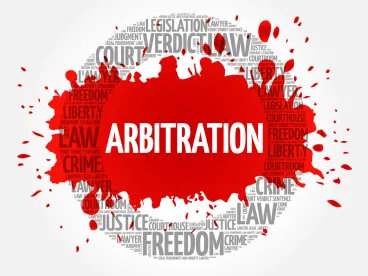In a significant case of first impression, the U.S. Court of Appeals for the Fifth Circuit just held it to be in error for a district court to order notice be sent to employees as part of a certification who, by a preponderance of the evidence, entered into a valid arbitration agreement. If the employer fails to establish the existence of a valid arbitration agreement as to a particular employee, that employee would receive the same notice as others. In re: JPMorgan Chase & Company, No. 18-20825. This decision is of great importance to employers with mandatory arbitration programs and those located in Texas, Louisiana, or Mississippi.
Background & Procedural History
In December 2017, Plaintiff Shannon Rivenbark, a call-center employee, sued Chase alleging that it had violated the FLSA by failing to compensate her and other employees at Chase’s call centers for working “off-the-clock.” Subsequently, plaintiffs moved to conditionally certify a collective action consisting of approximately 42,000 current and former call-center employees. Plaintiffs asked the district court to send notice to all putative collective members. In response, Chase argued that approximately 35,000 (or 85%) of the putative collective members had waived their right to proceed collectively by signing binding arbitration agreements. Specifically, “Chase averred that including those Arbitration Employees in the collective action and giving them notice of it ‘would be inconsistent’ with the agreements and the Federal Arbitration Act (‘FAA’).”
On December 10, 2018, despite Chase’s objections, the court conditionally certified the collective action, which included the 35,000 Arbitration Employees. In doing so, the court reasoned that even assuming Chase’s position was correct, “the Court cannot determine that there is no possibility that putative class members will be able to join the suit until [d]efendant files a motion to compel arbitration against specific individuals.” Chase had not moved to compel arbitration. The court conditionally certified the collective and directed that notice “be sent to all putative class members via First Class Mail and e-mail,” as well as ordered Chase to produce contact information for all 42,000 putative collective members.
In response, Chase moved for the district court to certify its order for interlocutory appeal under 28 U.S.C. § 1292(b) and to enter an emergency stay to allow for orderly appellate review, both of which were denied by the district court. On December 20, 2018, Chase filed a petition for a writ of mandamus, asking the appeals court to direct the district court to exclude from notice of the collective action “any employees who signed arbitration agreements waiving their rights to participate in [the] collective action.”
Fifth Circuit Decision
The Court of Appeals for the Fifth Circuit began their analysis by stating “[a] writ of mandamus is ‘a drastic and extraordinary remedy reserved for really extraordinary cases,’” and addressed the three conditions that needed to be met in order to issue a writ of mandamus. First, the petitioner must have “no other adequate means to attain the relief he desires.” Here, the Court determined that Chase met the first condition, as it determined that the error presented is “truly irremediable on ordinary appeal.” Chase would have no remedy after a final judgment, as the notice issue would be moot once the contact information was provided and the notice was sent out to putative collective members. Second, the court “must be satisfied that the writ is appropriate under the circumstances.” Here, the Court found that mandamus relief would be “especially appropriate” given the subject matter of the issue at stake (i.e. whether notice of a collective action may be sent to Arbitration Employees). The Court further recognized that this is an increasingly recurring issue, as well as one that no court of appeals has weighed in on. Lastly, in order to issue a writ of mandamus, the petitioner must demonstrate a “clear and indisputable right to the writ.”
In analyzing this last requirement and of particular note, the Fifth Circuit discussed and provided new important guidance regarding the discretion afforded to district courts as stated in Hoffmann-La Roche Inc. v. Sperling, U.S. 165, 169 (1989). The Court noted that while courts have discretion to send notice of pending FLSA actions to potential opt-in plaintiffs, “[Hoffmann-La Roche] did not explain whether Arbitration Employees waiving their right to proceed collectively count as ‘potential plaintiffs.’” This has resulted in conflicting outcomes from district courts, particularly when courts follow the two-stage Lusardi method to certify a collective action. See Lusardi v. Xerox Corp., 118 F.R.D. 351 (D.N.J. 1987). Many district courts, the Fifth Circuit recognized, wait until the second stage, when discovery is complete, to determine the applicability of arbitration agreements.
Ultimately, the Fifth Circuit held that district courts may not send notice to an employee with a valid arbitration agreement unless the record shows that nothing in the agreement would prohibit that employee from participating in the collective action. The Fifth Circuit further reasoned that Hoffmann-La Roche confines district courts’ notice-sending authority to notifying potential plaintiffs, but it nowhere suggests that employees have a right to receive notice of potential FLSA claims. Therefore, the district court’s December 10 order was incompatible with Hoffmann-La Roche and with the Fifth Circuit’s holding in its opinion regarding notice.
The Fifth Circuit also stated that district courts “do not ‘have unbridled discretion’ to send notice to potential opt-in plaintiffs” and that the purpose of giving discretion to facilitate notice is because of the need for “efficient resolution in one proceeding of common issues.” Additionally, the Court stated that notifying Arbitration Employees would reach into disputes beyond the “one proceeding,” and alerting individuals who cannot ultimately participate in the collective “merely stirs up litigation,” which is proscribed in Hoffmann-La Roche.
Finally, the Fifth Circuit noted that determining whether there is a valid arbitration agreement is a “question of state contract law and is for the court.” Where a preponderance of the evidence shows that the employee has entered into a valid arbitration agreement, “it is error for a district court to order notice to be sent to that employee as part of any sort of certification.” The Court ultimately determined that while the district court in this instance did err in ordering notice to Arbitration Employees, the court did not “clearly and indisputably” err, as is required for a writ of mandamus, and thus the Fifth Circuit denied the petition.
Takeaway
This decision is not only significant to employers with mandatory arbitration programs. This holding has the potential to reduce the ability of the plaintiffs’ bar to use the FLSA notice process and subsequent information obtained as leverage in class litigation. While this was the first court of appeals to address this specific issue, we will be carefully monitoring this development to see if other circuits follow suit.






 />i
/>i

